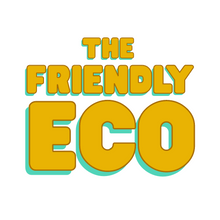It's no secret that we're living in a plastic-obsessed world. The average baby uses an estimated 3,000 to 5,000 disposable nappies before toilet training - and cloth nappies are becoming more popular every day. As well as using cloth nappies, eco-friendly parenting is all about reducing our reliance on plastic and non-renewable resources for our children's future. So lets take a look at how new parents can cut down on their use of plastics and be more eco friendly with these easy, money-saving steps!
Cloth Nappies
You probably saw this one coming - cloth nappies are the most eco-friendly option for babies. Not only do they reduce landfill, but cloth nappies also help to cut down on plastic and toxic disposable materials in our environment. They're reusable - so you can just buy one set of nappies and use them over again for multiple children. Despite their eco-friendly status, cloth nappies are also the cheapest option, with a full set of cloth nappies costing in the region of £200-£500, depending on the brand.
Wooden and Second-Hand Toys
As the name suggests, wooden toys are natural, eco-friendly and they help to promote creativity with open-ended play. By sustainably using natural resources which grow with your child, you can save on both money and waste. Another benefit is that by playing with wooden toys instead of the all-singing, all-dancing types, children are able to express themselves more freely while building their imagination.
The second hand market is another great place for parents looking for sustainable baby products. By checking with friends, parents can often get high-quality second hand items for a fraction of the price. This is a great way to buy plastic toys for purposes such as water/beach play without adding to landfill - just be sure to bring them home with you again so they don't end up harming marine life!
Homemade Food
It's really not as hard as you think to make your own baby food - you just need a few inexpensive or leftover ingredients, and a blender or food processor. A good place to find inexpensive fruit and veg is the reduced section in your local supermarket - just be sure to cook and freeze it the same day for ultimate freshness!
Making your own baby food is not only great for the environment - but it's also healthy and more cost-effective than buying ready made jarred and pouch foods, which often lack flavour and texture.
Cloth Wipes
Not just good for bums, cloth wipes are perfect for weaning babies and cleaning mucky hands at the park! Their thickness and grip means you need less per messy job. You can either wet on demand under a nearby tap or pre-wet them and place in a wipes box at home or wrung out in a wet bag when out and about. With disposable wipes costing £1-£3 a pack, a £15 pack of reusables will also be saving you money by the end of the first month!
Organic Cotton & Secondhand Clothes
Organic cotton is another eco-friendly option for new parents. Many organic clothing brands are designed for cloth bums, last multiple children, and each size is designed to fit for longer - my 2.5 year old son is still wearing rompers I bought him at 11 months old, and he's grown a lot in that time!
For those looking for second-hand clothing, a good place to start is with local Facebook groups as there's always parents looking to free up space and earn a little money. There's also many charity shops that sell high quality items on low prices - plus you'll be helping the environment, your purse and those in need!
Grow Your Own Food
If you're lucky enough to have a garden, why not grow your own fruit and veg? Not only does this provide fresh produce for the whole family - but it also reduces food miles! Planting seasonal crops means that there's always something in season or growing; while planting vegetables provides children with an opportunity to learn about where their food comes from. If you don't have the luxury of a garden, see if you have any local allotments or even grow some herbs on your windowsill - they taste so much better fresh!
Use Natural Soap Bars
Plastic soap bottles are a top contributor to plastic waste and they're not as easily recycled as you might think. Soap is one of the most commonly used household items, so by switching to natural, plastic-free alternatives such as plant based or organic brands, your family will be reducing their consumption of plastics without compromising on cleanliness. Most natural soap bars contain just a handful of ingredients as opposed to many supermarket baby shampoos which have tens of ingredients you can't even pronounce!
In Short
As parents, it's easy to get caught up in the idea of being a "perfect" parent. We want our children to live happy and healthy lives, but sometimes we forget that as adults, they will be making their own decisions one day. It may seem daunting at first because there are so many choices out there about what is best for your child, but with just a little research you can make more eco-friendly parenting choices that won't leave your wallet feeling empty too! What other ways have you cut down on your plastic use? Let us know below in the comments section or by emailing us at thefriendlyecobristol@gmail.com.

